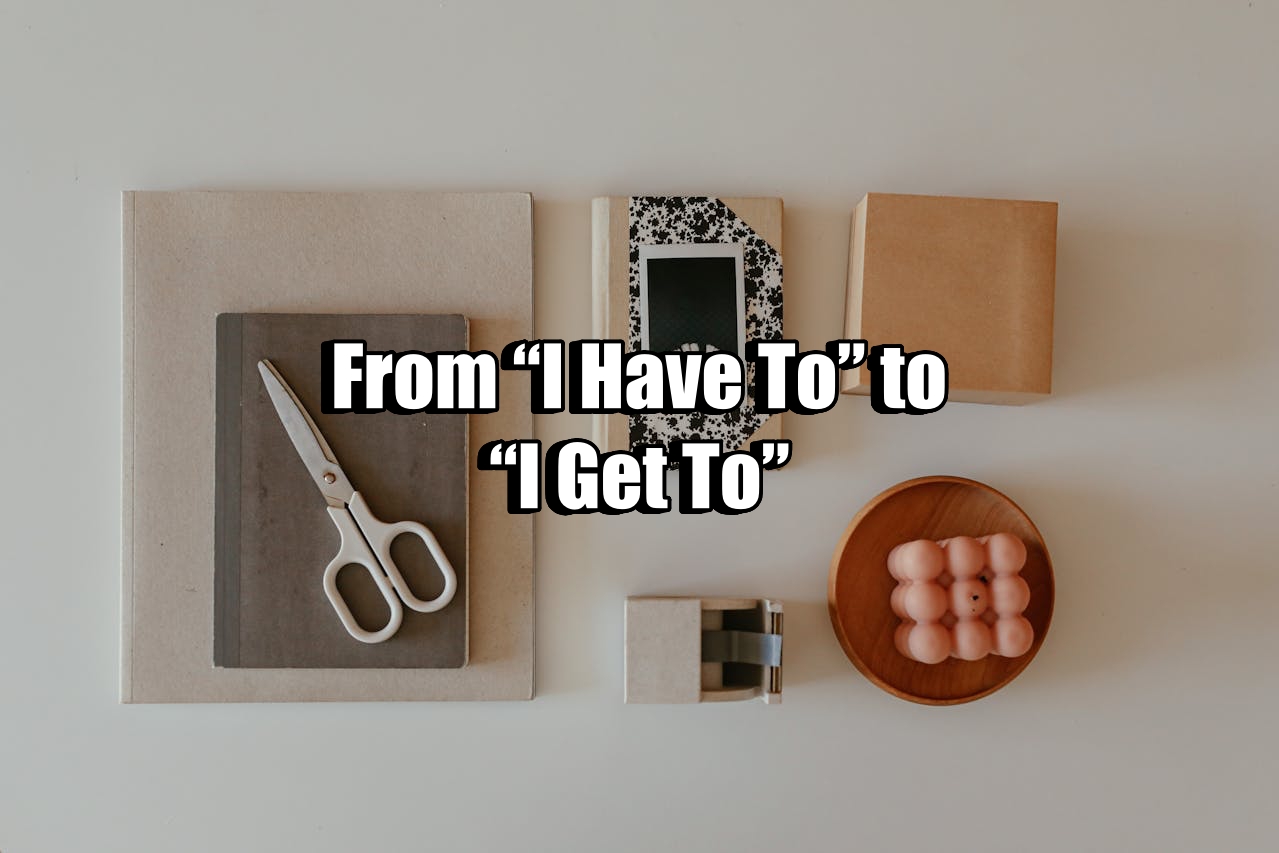Skip to content
From “I Have To” to “I Get To”: Gratitude as a Daily Practice
How many times a day do you say to yourself, “I have to…”?
I have to go to work.
I have to finish this report.
I have to cook dinner.
It’s such a common phrase that we don’t think twice about it. But hidden in those three little words is a weight—a sense of burden, obligation, or even resentment. What if we could shift that mindset? What if instead of saying “I have to”, we practiced saying “I get to”?
It’s a small change, but it can transform the way we see our daily lives.
Why Language Shapes Perspective
Words matter. They don’t just describe reality—they shape it. When you say “I have to”, you imply that the task is a chore or something forced upon you. But when you say “I get to”, you shift into a mindset of gratitude and privilege.
-
“I have to go to work” becomes “I get to go to work”—a reminder that having a job is an opportunity many would be grateful for.
-
“I have to pick up my kids” becomes “I get to pick up my kids”—a chance to spend time with loved ones.
-
“I have to exercise” becomes “I get to exercise”—because having a body capable of movement is a gift.
Gratitude in the Everyday
Gratitude isn’t just about big life events. It’s about the everyday things we often overlook. Having running water, a roof over your head, or even the ability to read these words are privileges that millions in the world don’t have.
When you reframe obligations as opportunities, you start noticing blessings where you once saw burdens. Gratitude takes you out of autopilot and brings you into the present moment.
Practical Ways to Make the Shift
-
Catch Your Words – Notice every time you say “I have to”. Pause and reframe it into “I get to”.
-
Keep a Gratitude Journal – At the end of the day, write down three things you were grateful to get to do.
-
Practice Micro-Moments of Thanks – While doing routine tasks like washing dishes or commuting, silently thank yourself or life for the opportunity.
-
Share It – Tell others what you’re grateful for. Gratitude is contagious—it spreads positivity in conversations.
The Ripple Effect
This practice is not about ignoring challenges or pretending everything is perfect. Life is still demanding, and responsibilities remain. But gratitude doesn’t erase difficulties—it gives them context. It softens frustration and replaces it with perspective.
Over time, this shift builds resilience, lowers stress, and creates a deeper sense of fulfillment. What once felt like a burden now feels like a blessing.
Final Thought
Every “have to” in your life is also a “get to.” You don’t have to wake up early—you get to start another day. You don’t have to meet deadlines—you get to contribute your skills. You don’t have to love your family—you get to experience the depth of those relationships.
Gratitude is not just an occasional reflection; it’s a daily practice. And it starts with three simple words:
From “I have to” → “I get to”.

No responses yet